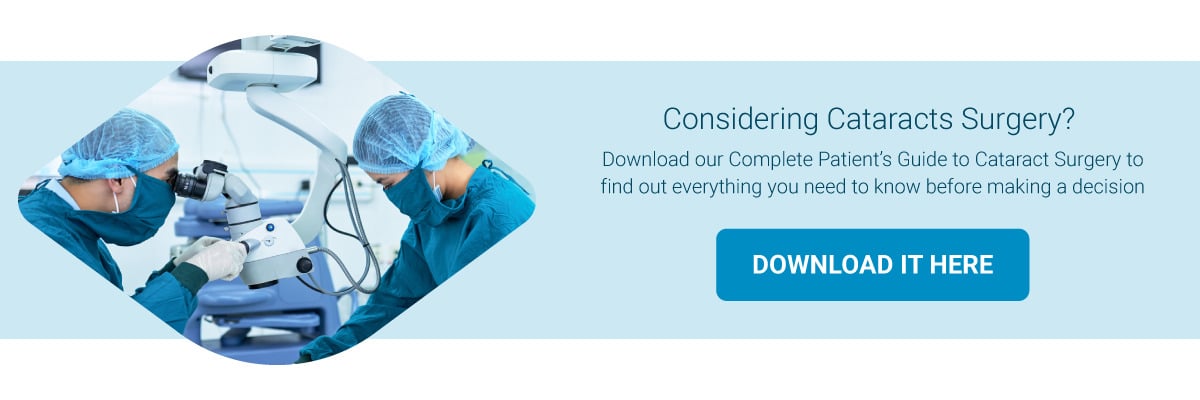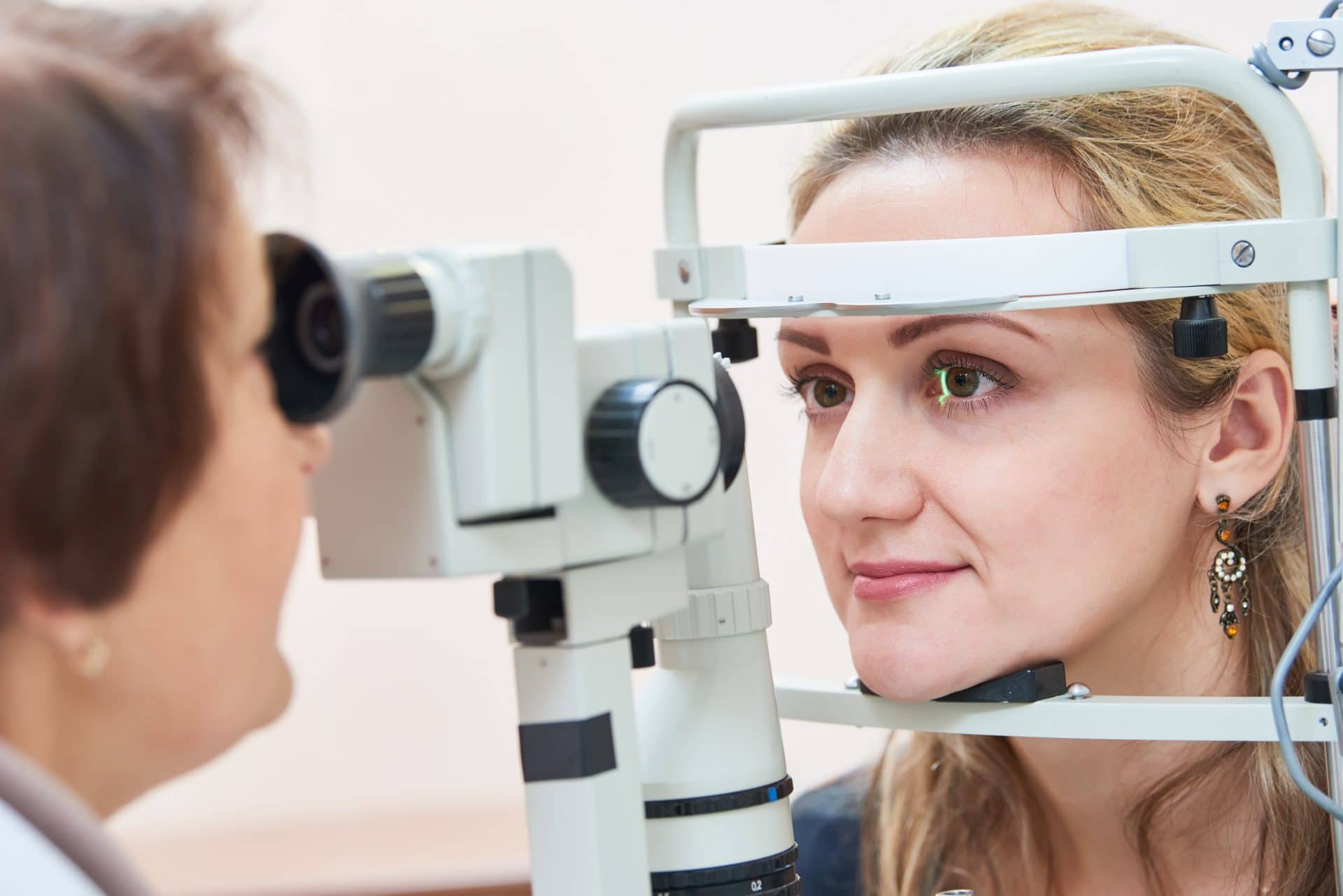Laser eye surgery and cataract surgery can both significantly improve your vision and quality of life.
Despite having the same goal of achieving better eyesight, the procedures are carried out in completely different ways.
Depending on the health of your eyes, you might need one or the other, or even both.
It can be a little confusing when it comes to eye surgeries, so here’s everything you need to know about cataract surgery vs laser eye surgery.
The Condition of Your Eyes
Your eye surgeon will decide on the best course of action for you after carrying out tests. They’ll examine your eyes and ask you a series of questions to get to the root of the problem.
Cataract Surgery
Cataracts are most commonly an age-related condition that develop over many years.
The older someone is, the more likely they’ll develop cataracts. One eye may have more advanced cataracts than the other but they usually both suffer from the condition.
If you have cataracts, your vision will become misty and blurred over time.
You’ll gradually notice small patches where your vision is foggy and realise that your glasses are no longer correcting your vision as they should.
It can be difficult to see in low or bright light and colours lose their vibrancy. Having cataracts is described as looking through glasses that need cleaning, even though they don’t.
Laser Eye Surgery
The most common type of laser eye surgery is LASIK and it’s offered to patients that are suffering from:
- Myopia (short-sight)
- Hyperopia (long-sight)
- Astigmatism
- Patients needing reading glasses
You’ll no longer have to wear glasses or contact lenses to correct short-sightedness or astigmatism as LASIK is typically a permanent solution.
Long-sightedness and the need for reading glasses will progress with age between 45 and 60. Some additional laser treatment may be needed for these patients.
Before the procedure, a surgeon will assess and measure how well you can see with and without glasses.
You’ll already know what your prescription is but they’ll check the thickness and shape of your cornea to determine the best course of action.
Whereas cataract surgery is most common in over 60s, laser eye surgery is popular at all ages once you’re over 18.
Not Sure Which Treatment Is Right For You?
We offer a number of vision correction treatments at our London Clinic.
We can give you a good idea of your suitability over the phone and schedule you for an initial consultation.
The Procedure
Eye surgery can sound a little intimidating, especially if we let our imaginations run wild.
In reality, cataract and laser eye procedures are both quick and pain-free. Both have excellent safety and effectiveness profiles.
Cataract Surgery
Cataract surgeries are the most common procedure of any kind in the UK with over 300,000 carried out each year.
Phacoemulsification is the chosen method of cataract surgery for most surgeons thanks to its accuracy and effectiveness.
After you’ve been given local anaesthetic, small incisions are made to allow a high-frequency ultrasound handpiece to break up the cataracts.
Once the misty lens has been broken into smaller pieces, they’re removed via suction.
Then, an intraocular lens (IOL) is inserted, replacing the natural one that was removed. The whole process takes only 10-15 minutes and there’s no need for stitches.
Laser Eye Surgery
Modern femtosecond LASIK involves the surgeon using a state-of-the-art femtosecond laser to create a thin flap in the cornea.
Then, the shape of the cornea is changed by evaporating microscopic amounts of tissue.
The shape of the corneal changes made depend on the condition of your eyesight.
For example, if you suffer from short-sightedness, then the cornea is made flatter.
Once the laser has finished reshaping the cornea, the initial flap is folded back into position where it can begin to heal naturally.
There’s no need for bandages or stitches and you’ll be given topical anaesthetic drops.
Most patients see an immediate improvement to their vision. You’ll be monitored after the procedure to see how things are progressing.
The Goal
Both types of surgery are done with the same goal – to improve your vision.
Although the conditions and methods are different, both are done to remove vision impairments and make your quality of life better.
Cataract surgery replaces the natural opaque lens with an artificial one while laser eye surgery reshapes the cornea to allow light to better enter the eye.
Different areas of the eye are operated on but with the same intended result.
Once the surgery has been carried out, you’ll have regular checkups at the clinic to make sure that your vision has improved and your eyes have healed correctly.
There’s a very small chance of infection or inflammation but the risk can be reduced by following your surgeon’s advice.
It’s possible to have both cataract and laser eye surgery to fix issues with your eyesight.
Your surgeon might recommend having both to permanently solve problems you have. You’ll have to wait for your eyes to heal before having surgery again but this should only take a short period of time.
Download our Guide to Cataracts
If you’re worried about your eyesight and you’d like to know more about cataract surgery, then make sure to download our free eBook.
It covers the treatment, the surgery itself and the cost of the procedure.
Alternatively, if you aren’t suffering from cataracts but you’d like more information on laser eye surgery, then you can find out more here.


